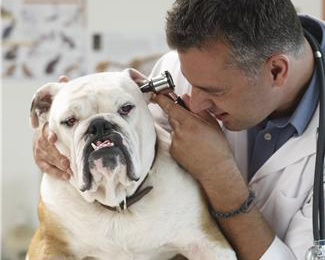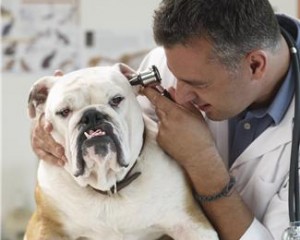
From a parent’s perspective, a pet shop’s best sales clerks are all four-legged or feathered, crawl, swim or slither.

Pets can be wonderful for children and there are benefits as well: improved self-esteem, companionship, a sense of responsibility or commitment, less sadness or depression and more.
I speak about dogs but “pets” could also be cats, birds, guinea pigs, gerbils, hamsters, pot-bellied pigs, reptiles, fishes, horses or any other creature.
Children might tell you the greatest thing about a dog is that it will eat foods they do not like, they are great alarms and love to play but probably will not mention how great they feel while petting and stroking their dog.
Caring for a living creature who returns attention and affection is a very positive experience. Dogs do not judge; a child might get a bad grade on an important test in school but when they walk through that door, it is 100% love and affection. What child (or adult) would not enjoy that? Dogs also never have ulterior motives; when they nudge you with their noses it’s not that they are wiping their noses on you, it’s that they want (demand) your attention.
Owning a pet is a wonderful experience for children and parents but is it one that will work for your family?
Before a parent agrees to get a dog or other pet there are a few things to think about and then discuss with the children.
Commitment is a must: Pets should be thought of as an addition to the family and almost as important as a member of the family. Think of it as a ‘forever’ pet, just like when parents bring home a new baby. No pet should be brought into a family just for the summer and abandoned; that is a terrible statement about lack of concern for living creatures. (The term “throw-away” dogs came about when people went from cities to other areas and then abandoned the dog when the left to go back to the city.) Accept that all pets may have one or more annoying or destructive behaviors and do everything you can to prevent bad behavior habits.
Jim Bob was wonderful poodle but he was very sensitive to touch when being groomed and would bite. My physician wanted to hospitalize me once because of the bite infection and wanted me to have Jim Bob put down. I could no more put Jim Bob down than I could put up one of my daughters for adoption. It was meant for me to have this dog because I was so patient with him but if he bit Chelsey or Katie— that would be another story. Other than that, he was a wonderful pet.
Scout’s only issues are ripping apart tissues she finds and barking when people come to the door. We keep tissues from her 99% of the time and we work on her barking every day. Scout, also a poodle, has had several health issues; she was spayed, a breast cancer was removed, she has crippling arthritis and liver issues. She is currently taking nine medications and the costs certainly add up. What Scout has given our family cannot be counted in terms of dollars and cents: devotion, attention, laughter and love. We could never consider putting Scout down unless her quality of life demands it.
Responsibility for a pet’s care must ultimately rest with the parents. Children will promise to feed and water the dog because they intend to do it but that will often change: overnight stays, camping trips, schoolwork and other commitments compete. At other times they may simply forget, when that happens a parent must take responsibility or the dog will suffer. If the child cannot and parents are unwilling to care for a pet then parents are charged with finding other accommodations— this is a living breathing creature with feelings and needs.
Stable home and family is very important. I learned recently that many pets were put into shelters because of eviction or disasters forced people to relocate into shelters where pets are not allowed.
Living space is important. If you choose a greyhound but live in a tiny apartment with little space to run, you are inviting trouble. When living space is limited, parents can choose from smaller creatures that will require less. Decide which creatures would be acceptable before giving children the good news.
Lifespan takes planning. One Parents Anonymous member said she would only own two dogs for her children, by the time dog number two died, the last child would be going off to college. It may seem cruel to think about it in those terms but it makes sense. If you are a parent who would rather vacation in Bermuda after the kids are gone, then getting a dog after the last child enters high school may not be a good idea. In general, smaller dogs live longer than big dogs; any animal haves a life expectancy you can look up.
Energy levels are to be considered. I have learned over the years that smaller dogs eat little but they have high energy which means they run, bark and play almost like a wind-up toy. In comparison, larger dogs tend to move about less and, unless disturbed, may sleep longer periods of time. Creating an energy scale you could put a Chihuahua at one end and a Great Dane at the other— plan accordingly.
Breeds are important to some. During my life I have owned five poodles but if I were to get another dog today it would not be a poodle. Why? This is only a personal opinion but in my observation I’ve noticed more physical and mental health issues among poodles and other pure breeds. I am not a professional but I think when breeders aim for specific traits in a breed, I believe it weakens the breed. My last two purebred poodles (and several friends) have both had serious issues and some have been very expensive.
“Heinz 57s” or mixed breeds have a lot going for them. The fact that they have several genetic lines in them actually makes them more healthy and, in my book, more desirable. The big bonus here is that many mixed breed dogs are minimally priced to free. Shelter dogs had a bad rap years ago as “throw-away” dogs but now days they are becoming more popular and who knows, maybe a starlet will choose one and start a trend.
Rescue dogs are also an option. Rescues are usually purebred dogs whose owners could no longer care for them due to living arrangement or economic changes or death. Since they are pre-owned the rescue agency will usually know the dog’s health and behavior issues.
Price of the dog and expected expenses should be considered. The price of a dog is a one-time cost— it is everything else that adds up. Food and treats depend on the size of the dog, larger dogs eat more. You will also need collars, leashes, bedding, chews and toys. Grooming is essential for any dog but a simple bath for a Chihuahua can be done at home but a dog like a poodle requires regular clipping that will naturally cost more. (Never give them any old shoes or objects to chew on because they cannot tell old from new.) When items wear out they will need to be replaced and I recommend items purchased from places specializing in animal products. Do not give a dog bones! (See medical costs.)
Licenses are a must. A small yearly fee has to be paid to keep your dog legal. The fee goes to support animal control activities and rabies clinics, etc. If your dog is lost, the license tag can help get them home again. Spayed and neutered pets may have a small reduction in cost for annual license fees.
Obedience Training is a plus. Training classes help teach people how to be responsible owners and to teach your dog obedience: sit, stay, down, etc. Socializing and obedience training is very beneficial. You may find low-cost training available in your area provided by clubs, organizations or pet supplies stores. (I developed my own non-violent method for barking reduction.)
Medical costs are variable. Dogs need to see a veterinarian for general check-ups and routine care. Veterinarians can check for worms, fleas, ticks as well as routine care and advice. Veterinarians will provide your pet with flea and tick killer so pets and home do not become infested. Veterinarians spay or neuter pets. Good dental hygiene reduces bad breath and tooth loss. Most provide dental care that can extend a dog’s life by enabling them to eat well. In general, if you feed your pet a healthy diet, give them regular exercise and regular care they can live an expected number of years. On occasion illnesses or diseases can greatly increase veterinarian expenses.
Boarding can be essential. A few travel accommodations now cater to people with pets but many still do not. If you plan a pet-free vacation you may need to hire a kennel for short-term care. If you plan to use a kennel, be sure to let the vet know so they can give your pet the recommended or required immunizations, depending on the location.
Chores and pets go hand-in-hand. Baths, grooming, picking up poops, cleaning accidents and picking up toys are a few chores associated with pets. Dividing and rotating chores among children can ensure that everyone does their fair share of dirty work. Fun chores may be exercising and walking your pet and I doubt you will have much problem getting a volunteer.
Pet safety is important. Fenced-in yards are a plus as far as safety is concerned but they are expensive. If you are a homeowner it could be an investment. Check yards or walking area to make sure there are no hazards: nails, broken glass or metal, holes in fences, pipes, holes in the ground, wells, etc. Indoors parents would be wise to get down on hands and knees as if child-proofing your home. Look for problem areas: wiring, stairs (dangerous in the dark), poisons, etc. Any emergency can be expensive.
Allergies and pet-to-human illnesses or diseases should be considered. Allergies are very common and are caused mainly by dander, a result of animals licking their fur. Keeping animals and floors clean can help reduce allergic reactions. Almost any animal carries with it a certain amount of risk. To learn more, simply google “animal to human illness disease dog,” or other creature you are considering.
Death experiences help children grow. Experiencing the loss of a pet can be temporarily devastating but can spark important conversations on death and spirituality. Discussing feelings can bring parents and children closer together. Experiencing grief in a family is a supportive arena to safely share and grow.
Drop me a line if you have any questions, I am open to all inquiries.
Jackie Saulmon Ramirez has served as a volunteer with Parents Anonymous® of New Jersey, Inc. for more than twenty years, giving and getting support. Find her at her contact page.